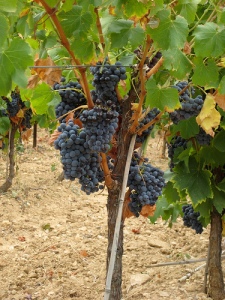
There is a terrible irony in the typical human’s response to pain.
Emotional, physical, or mental suffering is most often considered personal, or about one’s self, and so it is dealt with on one’s own.
A suffering person, ready to divulge their pain, may say, “This is hard to say out loud,” or “This is difficult to share with people I don’t know that well.” The pain has been internalized, and taken in, stewed.
We all do it. But now I ask “why?” Habit maybe, yet we do terrible jobs of healing ourselves. Our wounds fester and putrefy.
Outside perspectives, and the gracious love of community offer healing we can never find alone.
I wonder if the broken-ness of this world makes us retract. Maybe a flight/flight instinct is at first to simply be self-preservative. In reality, we are not alone, our pain is not unique. But, the shock, and upset sends us into hiding, or a kind of “hunker in the bunker” mode. The bitter stab, the disappointment, or the awfulness of suffering makes us fear, and mistrust, so we give ourselves no option but to withdraw, and go inward, taking the pain with us. It rarely finds a good exit. Then we lick our festering wounds, in solitude, even as we may curl back unnoticed, behind the dumpsters of the very hospital (a situation) that could being healing, comfort, and hope. Don’t we?
Could pain really be something different altogether, and we might just be misapprehending it far too much?
Could it be a way to lead us home?
Is it a way to lead us into each others arms, once again?
Those who have been calmed and gained healing, find that healthy community is the surest way to growth, start invigoration, locate meaningful purpose, and heal hurts. How is it that so many of us suffer quietly, and alone, in the margins?
How very strange that together, we suffer alone! The irony is horribly striking. How awful too, I think, that we’ve also missed something big about others who suffer. We too often shoot our wounded, by condemnation or inattention. Or push them out, somehow, into further isolation. How coarse. How morbid. The God who welcomes the outcast, the wounded, the sick, and the sinner, mingles with them, pulls them in, and is close enough to touch their afflictions, and pass them bread.
Let us think of ways to come out of our own sufferings into the light and healing nature of community with others, God has provided. Beyond that, let us reach out to those isolated, or away from us–those silently hurting. Let us understand that they will try to handle their pain themselves, but they cannot. We can kindly be there, to hear them, offer friendship, and love. But most of all, with or without words, reassure them that no one suffers alone, not any more.
Do you have comments about suffering or isolation?
Please contribute.
If you take this to heart, and do something about it, please share that with us. Thank you.






